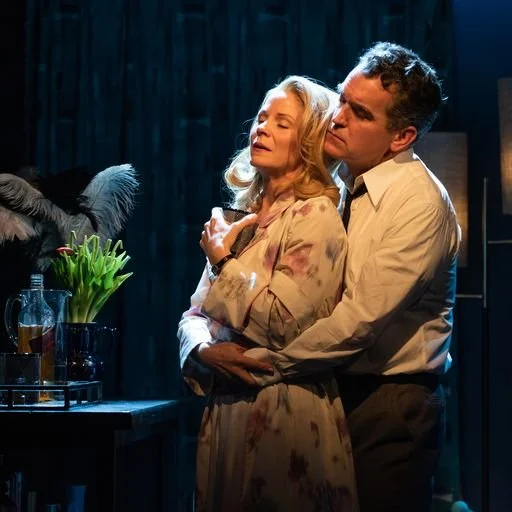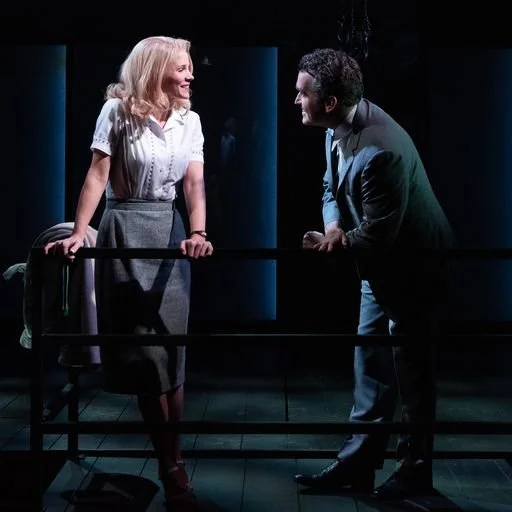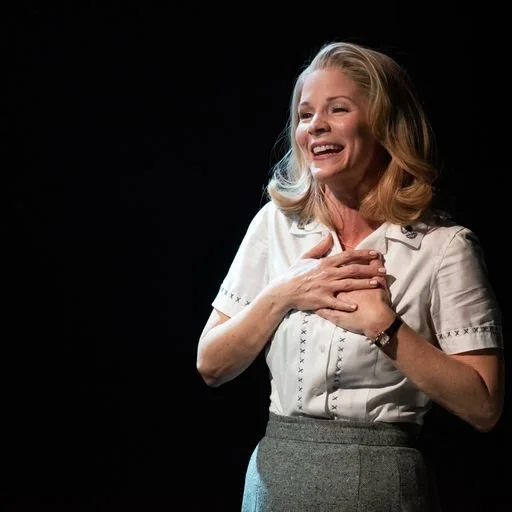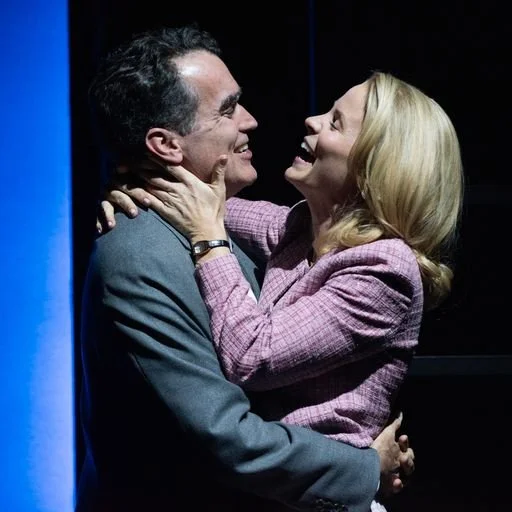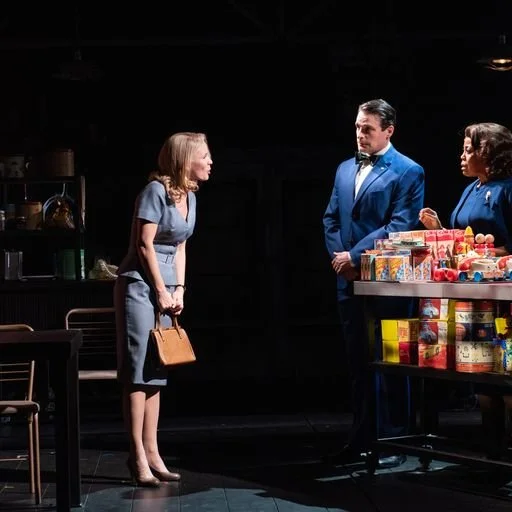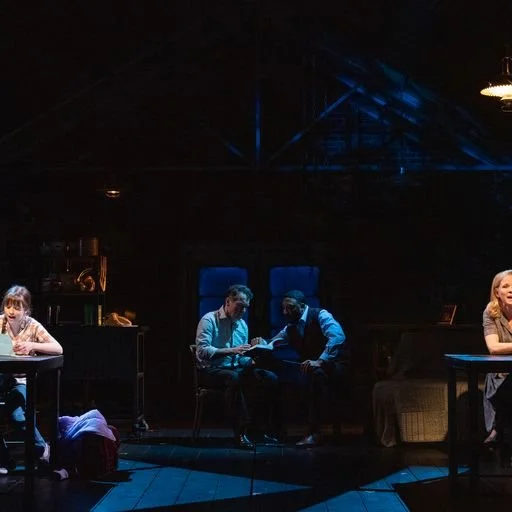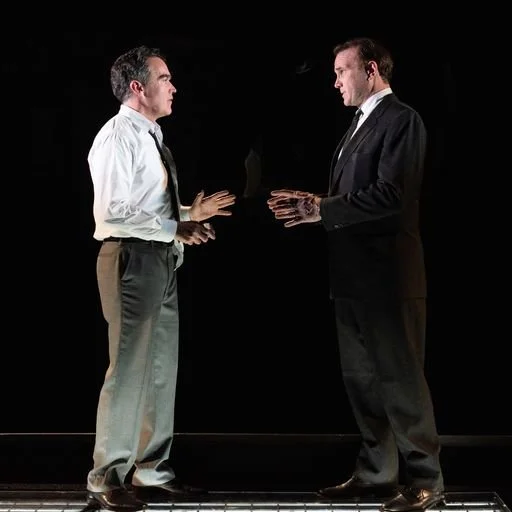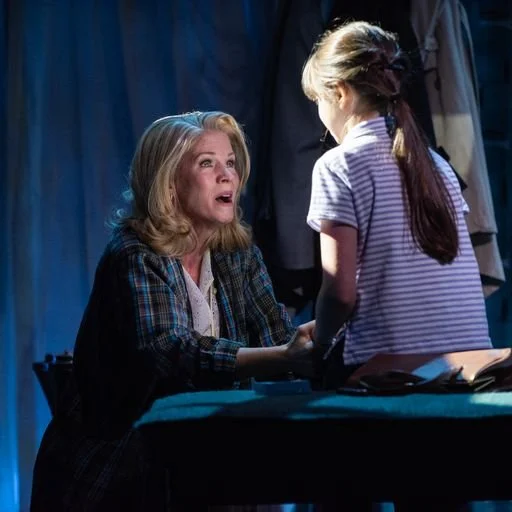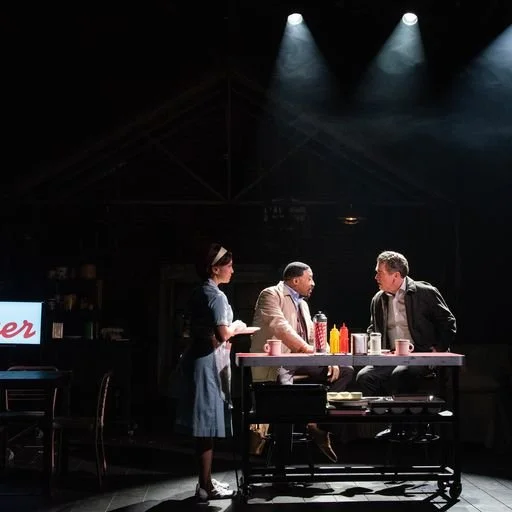Review: "Days of Wine and Roses' Musical Off-Broadway
The show: “Days of Wine and Roses” at the Atlantic Theater Company
What makes it special?: A new musical by composer Adam Guettel with a book by Craig Lucas, collaborators on the luminous “The Light in the Piazza.” But there’s also other factors that make this production special.
Such as…?: It stars the exquisite Kelli O’Hara (also from “The Light in the Piazza”) and Brian d’Arcy James (most recently nominated for a Tony for “Into the Woods”) in a work based on the JP Miller play, and the 1962 film which starred Jack Lemmon and Lee Remick. (Miller also wrote the teleplay for a 1958 adaptation which starred Cliff Robertson and Piper Laurie.) It’s also been 18 years since “Piazza” by the not-so-prolific Guettel so any new work is eagerly anticipated..
Love the title song: There’s no title song in this show, a wise move since the film’s memorable title song by Henry Mancini won an Oscar. It’s a wistful, ear-worm of a ballad, but there's nothing wistful about the overall story — nor in Guettel’s lyrical, complex and ambitious score for this musical theater adaptation.
What’s it about?: It follows the source material depicting a newly married couple in the 1950s and their descent into alcoholism. He is Joe Clay, a glad-handing, driven public relations exec, always with a drink in his hand where it’s always “magic time.” When he meets Kirsten Arnesen, a secretary in his company, she is cool to his come-ons but soon softens to his more honest and natural charms. She doesn't drink but when he presents her with a tasty brandy Alexander, she finds it much to her liking. More than a little too much. We soon see the couple partying it up and it at first seems fun and, yes, intoxicating. But inevitably, the drinking and the attempts at abstinence put a strain on their marriage, his job and their family. Each battle in their own way the demons of addiction and struggle mightily with recovery.
It doesn’t sound upbeat for a musical: It’s not but what the creative team — including director Michael Greif — has fashioned here is a sometimes harrowing, sometimes poignant, but always mesmerizing depiction of the very human battles, some won, some lost, with addiction and musical theater is a viable place in which those passions can live in profound ways.
Guettel has stepped up to dark challenges before (”Floyd Collins” and “Piazza”) by bending the traditional musical theater template and creating something new and unexpected; something nuanced and lyrical, and incredibly intimate — and in this case also very personal, as both he and Lucas have talked publicly about their difficulties with substance abuse.
There’s much to savor — and discuss — in this unconventional work of musical theater.
In what way?: Almost all of the singing in this small-cast chamber work is done by the two leading characters as they go on and off the bottle. (Call it “I Do! I Don’t!”) Putting the spotlight on just the two of them zeroes in on their co-dependent relationship — with the booze making it a threesome. But it also means the creative team has to have the goods to sustain that conceit as it avoids traditional musical theater forms. (It’s clear what the “I want” is from the get-go.)
O’Hara and d’Arcy James have stunning vocal chops and the singing and much of the music is exquisite. (Audience members in the performance I saw were breathlessly quiet and so respectful of the music and the singing in a show, not wanting to miss a note or a word.) But by putting all of their theatrical chips on just these two characters, one expected a greater sense of depth to them, especially since they’re in a rather schematic story that is just on the edge of melodrama. The audience very well knows where this story is going — and it’s very familiar and not very pretty — so the characters have to be extraordinarily compelling. (The performances certainly are.)
This is where the piece needs more work as it considers a Broadway berth. While Joe has somewhat of a back story as a Korean war veteran who has seen a lot of action, Lucas’ economical book needs to go further — especially with the character of Kirsten, both with her relationship with her father (wonderfully played with stern indignation by Byron Jennings) and as a woman alcoholic in the ‘50s — especially one who is a beautiful wife and mother — and how that woman is seen quite differently than a man who has “a drinking problem.”
Guettel’s score though is a marvel as it often mirrors the woozy world of drink and exploring the dark emptiness at the bottom of the glass. It’s a score where songs can swing with the fizzy feel of jazz, or soar to operatic heights of hope and despair. Guettel’s melodies often leave the trtaditional track and wander in ways which can be sometimes disconcerting, but as the notes land on minor keys, as time signatures switch on conversational turns, as the phrasings meanders to private places, you are only drawn more into the characters’ anguish and obsessions. Lyrics, too, can suddenly illuminate with words and imagery that take you to surprising places, that sometimes seem to free-fall, and that can reveal " “two people stranded at sea, two people stranded are we” who are in a relationship that’s “as the water loves the stone.”
The lead performances are magnificent. O’Hara has never been better: natural, funny and radiant at times, singing with percision and clarity that is especially appreciated in this intimate space. She is also a revelation in her most dramatic scene in a motel room when she hits rock bottom and heartbreaking in her later efforts to reconnect with her family.
James echoes some of that mid-century swagger he showed so well in “The Sweet Smell of Success” but that brashness here disguises a war of wounds for Joe that only drink can help heal. When it’s not there, James’ Joe is lost and filled with desperation and a fury that erupts in a scene that takes place in his father-in-law’s greenhouse (also a memorable scene in the film). Ella Dane Morgan is very good as the young daughter Ella who has learned to be self-reliant as an orphan in her parents’ world of drink.
There are terrific orchestrations for the six-piece ensemble by Guettel (with additional work by Jamie Lawrence) and music direction is by Kimberly Grigsby. In the small space of the Atlantic, Llzzie Clachan’s set design doesn't quite succeed for the show’s multiple settings, nor for the water imagery that is used throughout the show. Though he brings out amazing performances , Greif’s staging is also clumsy at times in the theater’s confining stage. One can easily imagine a fuller production but with that comes the danger of losing the intense and helpless feeling for an audience of witnessing a tragic accident close-up.
Who will like it?: Those who appreciate musical theater pieces that breaks the mold and explores serious issues. Fans of O’Hara, James and Guettel.
Who won’t?: Those who prefer something more, say, Rodgers & Hammerstein. (BTW: Guettel is Rodger’s grandson.)
For the kids?: This is a complex adult drama, though it could act as a cautionary tale for teens.
Thoughts while leaving the parking lot:? I look forward to hearing the score again. Like “The Light in the Piazza,” I’m sure my appreciation will only deepen on re-listening . Some scores are not fully realized until they’re heard on repeated go-rounds. I still find new discoveries in re-listening to tracks by Sondheim and Miranda and especially Guettel’s works.
Info: Intermission-less show with running time of one hour and 45 minutes

